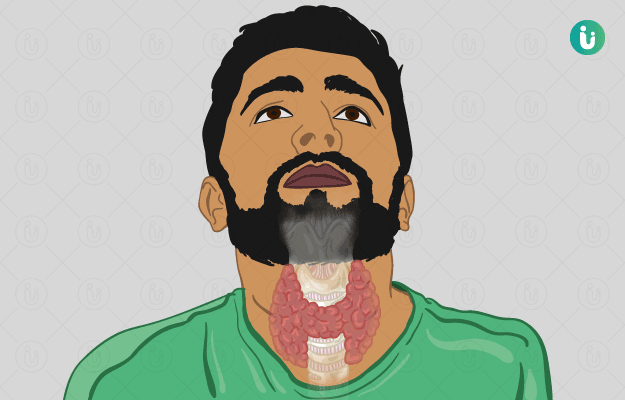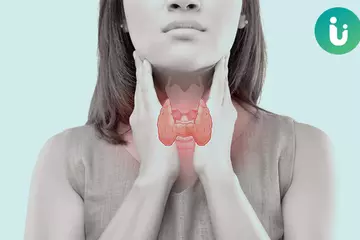What is hyperthyroidism?
The thyroid is a butterfly-shaped gland in the front part of your neck, which produces hormones responsible for metabolism, energy generation, and mood regulation. Disorders of the thyroid gland result in disturbance of metabolism of multiple systems. The main problems associated with the working of the thyroid gland are overactive and underactive thyroid hormones production. The occurrence of thyroid dysfunction is more common in women than in men.
What are its main signs and symptoms?
Overactive thyroid gland produces excess thyroid hormone, the condition is referred to as hyperthyroidism. Symptoms of an overactive thyroid are as follows:
- Weight loss.
- Anxiety, irritability, and mood swings.
- Swelling on the neck due to enlarged thyroid (Goitre).
- Weakness.
- Increased heart rate.
- Sensitivity to heat.
What are the main causes?
The main causes of hyperthyroidism are as follows:
- Graves’s disease.
- Nodules on the thyroid gland.
- Increased iodine uptake.
- Non-cancerous tumours of the pituitary gland.
- Inflammation of thyroid gland due to viral infection.
- Thyroid cancer.
How is it diagnosed and treated?
Diagnosis of any kind of thyroid problem can be done in the following ways:
- Physical examination of the neck.
- Blood investigations: To check levels of Thyroid Stimulating Hormone (TSH), T3, and T4.
- Iodine uptake tests.
- Ultrasound imaging of nodules on the gland.
- Biopsy of the abnormal growth on gland.
Treatment of thyroid problems will differ according to activity shown by the gland and hormonal levels detected in blood test. The following treatment options are available for Hyperthyroidism:
- Medication: Radioactive Iodine, anti-thyroid medication, and anti-inflammatory drugs.
- Surgical removal of part or entire thyroid gland.
Regular check-up and follow-ups can help take care of hyperthyroidism. A balanced diet rich in vitamins, proteins, calcium, iodine, and magnesium can help you keep thyroid problems away.
(Read more: Hypothyroidism treatment)

 Doctors for Hyperthyroidism
Doctors for Hyperthyroidism  OTC Medicines for Hyperthyroidism
OTC Medicines for Hyperthyroidism
 Hyperthyroidism articles
Hyperthyroidism articles

 Home Remedies for Hyperthyroidism
Home Remedies for Hyperthyroidism







 Editorial Team
Editorial Team











